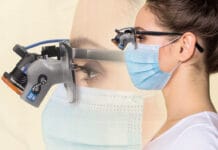In a world surrounded by social media that is growing exponentially, we often find ourselves delving into these platforms for answers, advice, and news. Social media is a part of many people’s routines, and users average 144 minutes on social media daily.1
Facebook, specifically, is chock-full of groups for connecting with like-minded individuals. The dental community is no exception, with various groups of our own. Naturally, I belong to these groups, as do you. Often, I find my colleagues reaching out for assistance in these groups, whether for advice on how to handle an office situation or inquiries on licensure recertification.
While I, too, love to hear from my knowledgeable peers, I feel that we need to bear in mind that certain information must come straight from the source in order to ensure complete accuracy.
100% Factual about Relicensure
As dental professionals who have worked hard for our careers and to maintain licensure, we must protect that investment by obtaining 100% factual information by going straight to the source. When we are confused or curious about the statutes that define our licensure, it seems natural to ask other dental professionals for the answers. Dental laws and licensure requirements vary by state and often change. When confused about what your particular state requires, it seems more logical to search on the website and Dental Practice Act associated with your state license in order to ensure that you are following the guidelines correctly.
For example, the state of Tennessee requires all dental professionals to complete a jurisprudence exam before licensure will be renewed, reinstated/reactivated, or issued initially. In addition, dental hygienists must complete 30 continuing education hours, with only 15 being allowed for self-study and two hours pertaining to chemical dependency.2,4 In comparison, Oklahoma dental hygienists must also obtain 30 hours of continuing education (up to five hours can stem from approved volunteerism), and an ethics course is every three years required for relicensure.2-4
While it would be easy to ask our peers what is required, it seems more rational to back up their knowledge with your own research-based facts on something as important as licensure, rules, and regulations. It would certainly be a tragedy to be fined or found uncompliant due to only listening to what someone honestly thought to be accurate information as opposed to going straight to the source for answers.
Researching Professional Purchases
Another topic I often see floating around on social media groups is in regards to equipment such as loupes and saddle stools. Please understand there is nothing wrong with obtaining someone else’s thoughts and opinions, as I feel this is an important aspect prior to investing in these particular purchases. However, simply using suggestions from others as your only form of guidance is negligent.
As an avid runner, I like to compare this to purchasing running shoes. While I have certainly obtained thoughts and opinions from the running community, I have done my own research to narrow down what shoe might best fit my foot and pronation. However, this wasn’t always the case. Early on in my running adventures, there were countless times when I based my purchases completely on the opinions of others ‒ afterward discovering that the shoe increased my knee pain or was not a great fit for my foot.
What works for one may not work for others. When considering saddle stools or loupes, it is a great idea to get feedback from peers so that you have a good solid base to stem your own research. Gathering information from the manufacturer will help you understand what type and fit you need specifically for your body. It is important to make calculated choices to prevent injury and to better serve your needs.
Accountant or Social Media Friend?
Another topic that draws a lot of social media attention centers on tax-related issues. Dental hygienists are sometimes hired as independent contractors who are paid without tax deductions, requiring a 1099 form to be filed on federal tax returns. The controversy that stems from this topic has caused many discussions on how a dental hygienist should proceed and if cash should be accepted as a form of payment.
While many have strong opinions on this particular subject, I firmly feel that this matter is best suited for a certified accountant. Misfiling taxes will almost always lead to an investigation from the IRS and can result in penalties. This is a completely avoidable circumstance by conferring with a professional who has built a career on such knowledge.
Accuracy for the Patient’s Sake
Dental professionals are often troubled with what is safe for patients who suffer from allergies or adverse reactions to particular ingredients. Out of intuition, I have found myself searching for related topics on social media groups for answers when I should be getting my information straight from the source. For instance, does such and such fluoride varnish contain pine nut rosin? Is such and such product safe for those with milk derivative allergies? Place yourself in the shoes of the patient and ask yourself if you would want your medical professional to rely on the opinion of another or from fact-based evidence from the manufacturer itself.
After all, “to err is human,” and what someone innocently believed to be accurate could, in fact, be an honest mistake. While conducting our own research can sometimes be time-consuming, it is certainly worth the effort. By consulting with manufacturers, we can better serve our patients and feel confident in our decisions.
Please know that I am writing this as a reminder to myself as much as I am writing it for you. As a strongly knit community of dental professionals, we value each other’s opinions so immensely that it seems natural to ask one another for advice. However, while the sentiments of our peers matter, we must remember that some information is best retrieved straight from the source.
Need CE? Check Out the Self-Study CE Courses from Today’s RDH!
Listen to the Today’s RDH Dental Hygiene Podcast Below:
References
- Henderson, G. (2020, August 24). How Much Time Does the Average Person Spend on Social Media? Digital Marketing. Retrieved from https://www.digitalmarketing.org/blog/how-much-time-does-the-average-person-spend-on-social-media/.
- Rules of Tennessee Board of Dentistry. (2014). Tennessee Board of Dentistry. Retrieved from https://publications.tnsosfiles.com/rules/0460/0460-01.20141229.pdf
- Rules and Regulations. (2010). Board of Dentistry State of Oklahoma. Retrieved from https://www.ok.gov/dentistry/documents/2010%20Dental%20Rules%20and%20Regulations.pdf
- Overview of CE Requirements for Dental Hygiene Licensure Renewal. (2019). American Dental Hygienists’ Association. Retrieved from https://www.adha.org/resources-docs/7512_CE_Requirements_by_State.pdf











